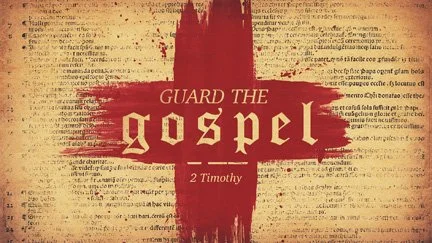Being a parent isn’t easy. It may be the hardest job in the world. I can only say that from the outside looking in, since I’m not a parent myself. But I have spent a lot of time around children over the years, both in my family and in my work. And I am in awe of parents and all that they do.
When you are a parent, one of your hard jobs is to teach your children how to behave in polite society. This isn’t easy, because children aren’t born equipped for this. In fact, children are born with a strong selfish streak; for many of them, their first word is “mine.” And children seem bound and determined to test the limits, all the time, in every way. You tell them, “Don’t touch that,” and they won’t rest until they touch it, even if “it” is a hot burner. You caution them, “Don’t run out into the road,” but if you don’t watch them like a hawk every moment, you can bet they’ll be in the road just to see what will happen. You want your children to learn to say “Please” and “Thank you,” and to know what is right and wrong for themselves.
But teaching them those things requires some kind of external enforcement. When your child does something wrong, especially when they are very small, you can’t reason with them. You can’t explain why a two-year-old shouldn’t run out into the road; when you see them head in that direction, all you can do is grab them and yell a little and maybe even take a swat at their little behind. My dad gets to see three of his great-grandchildren on an almost daily basis. When Ezra was small, he was fascinated with my dad’s glasses. And he would reach up and try to grab them. My dad would say, “No,” in a firm voice and move his hands. Until one day, Ezra actually got his hands on the glasses and pulled. So my dad smacked his little hands and said, “NO!” in a louder voice. That was the last time Ezra went for the glasses.
By the time a child is ten or twelve years old, the goal is for that child to have learned the difference between right and wrong and to make his or her own decision to do the right thing. That motivation comes from within, not from without; it is something the child does on his own, not because a parent tells him to or is ready to punish him for doing the wrong thing. There is an internal system of behavior, not an external one.
That is the kind of difference that Jeremiah is talking about in this passage from chapter 31. And it came at a crucial moment in Israel’s history. We talked a few weeks ago about how Israel had been conquered by the Babylonians. This happened as punishment, because the people had continually broken the covenant between Israel and God. After many warnings and much cajoling on the part of Jeremiah and other prophets, the people still refused to change their ways. And so God took disciplinary action.
The city of Jerusalem was destroyed, including the Temple. The people who mattered most – educated people, government employees, and rich people – were taken off into exile in Babylon, and foreigners were resettled in the land. This was a means of preventing the conquered peoples from rebelling against Babylon. The people were in deep grief over all that they had lost, and they were finally beginning to understand the connection between their behavior and the punishment that had taken place. And at that moment, Jeremiah spoke words of hope and promise to them. God wasn’t through with them yet. There would be a future for them, a future that was better than the past or the present.
As Hulitt Gloer, professor of preaching at Truett Theological Seminary, puts it, “Into the darkest night of the life of Israel … comes the brightest light. Ripped from their holy homeland, forbidden access to their sacred temple by both physical distance and the devastating fact of its destruction, they surely thought their God had abandoned them … It is a familiar pattern in history. Dark times come … there seems to be little hope. Then into this darkness a voice speaks … This voice of hope suggests that there is light, no matter how deep our darkness may seem.”
The good news that came to the people was that God had not abandoned them, in spite of their disobedience. In fact, God was with them, even there in their exile. And God offered them grace and mercy. God was ready to initiate a new covenant with them, a new kind of relationship that was possible only because of God’s willingness to forgive and forget. God was taking on voluntary amnesia, choosing to remember their sin no more. And he would enter into a special relationship with the people: “I will be their God, and they shall be my people.”
This “new covenant” is the first mention in the Old Testament of the New Testament; the word “covenant” can also be translated as “testament.” And it is a covenant that was finally brought to life through the life and death of Jesus Christ. Every time we take Communion, we repeat the words of Jesus: “Take this cup and drink from it, all of you. This is the new covenant in my blood, poured out for you and for all for the forgiveness of sin.” The new relationship that God had envisioned was made possible through Jesus.
While the old covenant made at Mount Sinai was written on stone tablets, the new covenant is written on our hearts. It isn’t an external covenant, but an internal one. God is putting his will into us. That means that we will choose to do his will voluntarily, not because of the threat of punishment or the promise of reward, but because we know in our hearts that it is the right thing to do. As Pastor Bruce Boak refers to it, this is a “covenant of internalized integrity.”
So how do we enter this covenant? How do we take God up on his offer to forgive and forget?
First, we have to confess our need for it. We, just like the people of Israel, are not capable of keeping the old covenant. We know what God’s expectations are of us; we know what God’s directions for life are, according to the Ten Commandments and other scriptures. But we are basically powerless and incapable of living by those directions. That is because we are sometimes selfish, sometimes headstrong, sometimes just plain ornery, and we resist doing what we know God wants us to do. The Bible calls that “sin.” And we are all guilty of it. So, we have to go to God and admit that guilt.
Second, we have to confess our need for Jesus Christ. Jesus came to bring us the new covenant in his own blood. Jesus shows us what it means to be in relationship with God, to know God not just to know about God. Jesus put God’s forgiveness into effect by paying the price for our sinfulness. We are able to know the grace and mercy of God because of what Jesus did for us. When we accept Jesus Christ as our personal Savior, when we live in the way of Jesus, every time we partake of Holy Communion, we are committing ourselves to living by the new covenant, a covenant that has changed us from the inside out, through the grace of God. We are saying that we are determined to do what is right because we know it is right, not because we are afraid of how God will punish us if we don’t do it. It is something that comes from within us, not from outside.
Third, we have to choose to live by the will of God, even if that makes us different from the world around us, maybe especially if that makes us different from the world around us. The original covenant made at Mount Sinai set up a system of living that would set Israel apart from other nations by their actions and their obedience to God’s law. They would be God’s people; they would do God’s will. And the new covenant will make us different from other people, also. We will do God’s will and we will be God’s people. As Old Testament scholar Walter Brueggemann wrote, “Our worship, spiritual discipline, and education seek to help us … practice grief in a world of denial; practice sacrament in world of technique; practice generosity in a world of scarcity; practice obedience in a world of indulgence; practice hope in a world of despair.”
God has made it possible for us to be in a special relationship with him. That relationship is defined by the new covenant made with us through Jesus Christ. When we choose to commit ourselves to living by that covenant, God will change us from the inside out; he will put his will into us and write it on our hearts. In that way, we will become people who belong to God.









